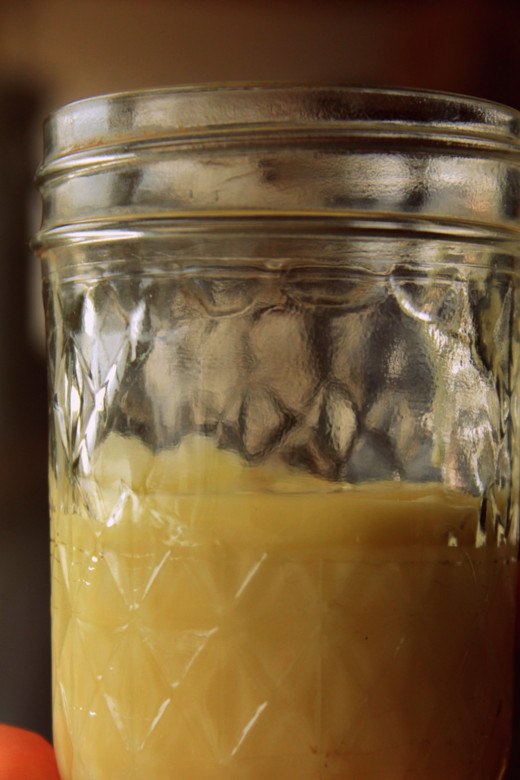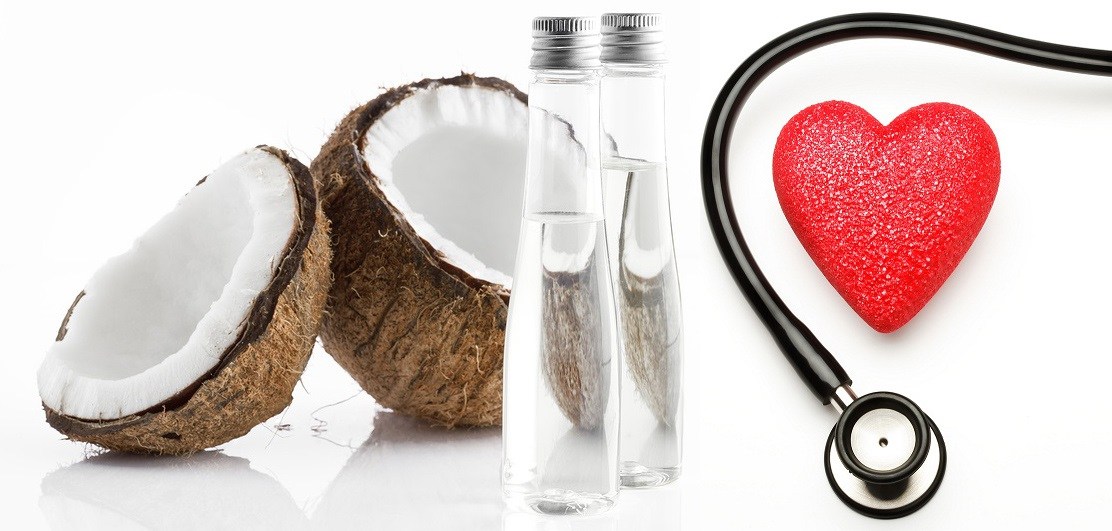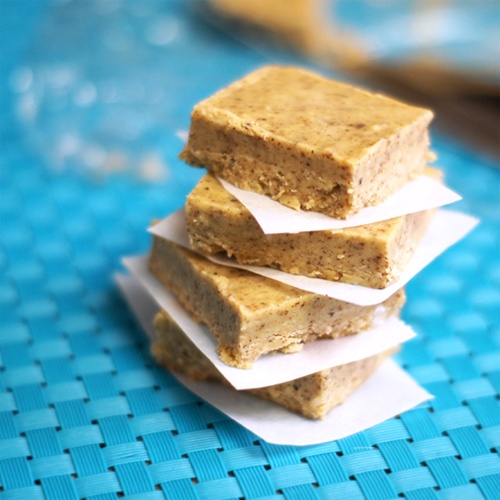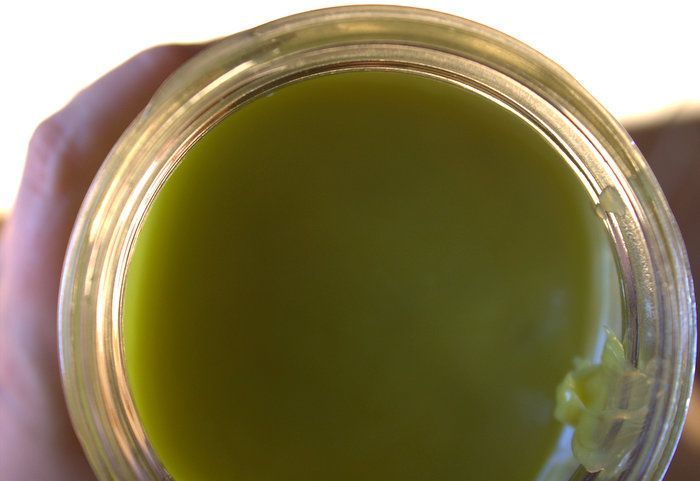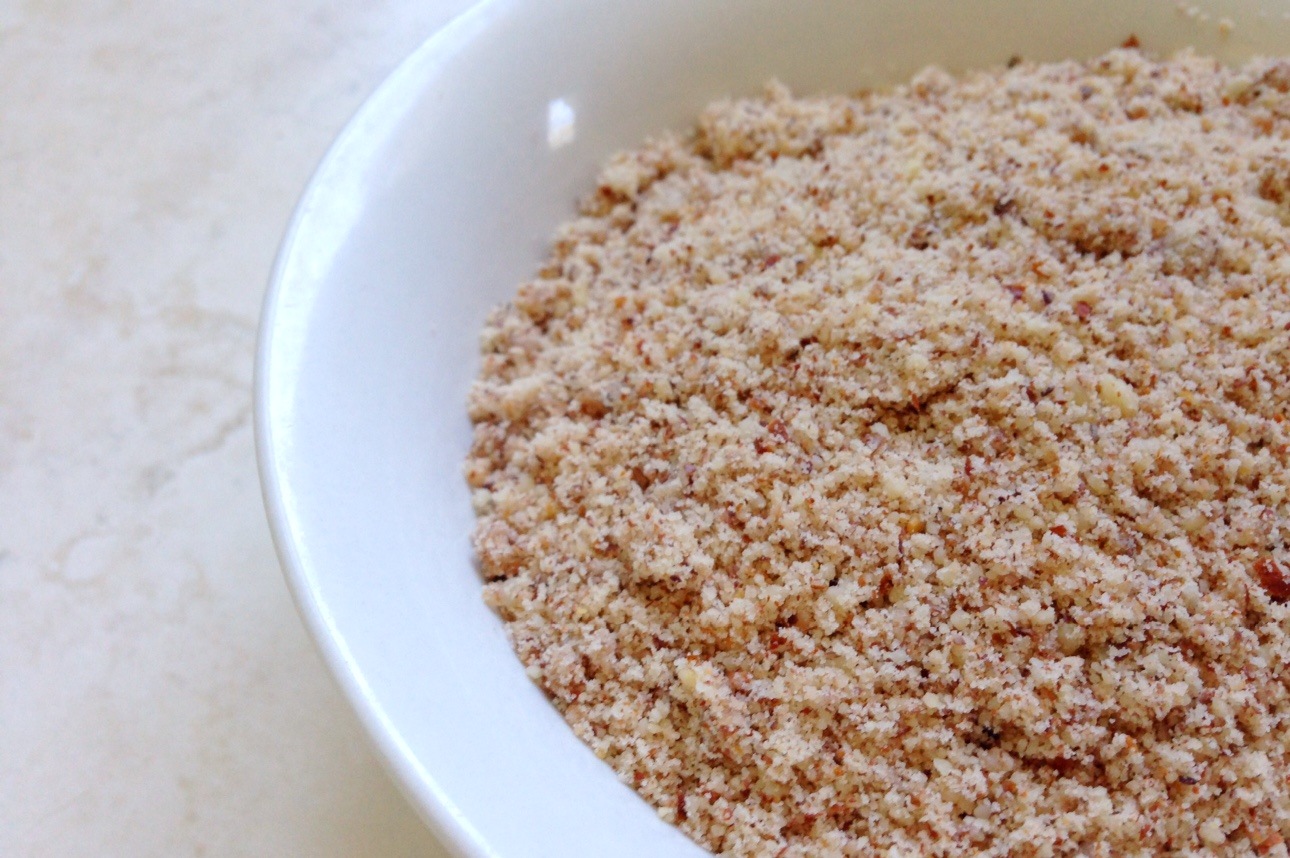Much maligned for years as a saturated fat, we’ll bring you truth regarding the incredible health properties of coconut oil.
A Warm Weather Coconut Oil Deodorant Recipe that Won’t Melt
There are a plethora of reasons to avoid commercial deodorants. With aluminum, toxic chemical fragrances, and parabens; they are a perfect storm. On top of that, the underarms are a very sensitive area to apply toxins to with lymph nodes nearby. In order to keep this area, and the rest of the body, free from such toxins, it’s a good idea to make your own deodorant. These won’t stop you from sweating, but they can aid in keeping odors to a minimum. This is especially true when the deodorant uses anti-bacterial ingredients such as virgin coconut oil. Virgin coconut oil has been used by many, all by itself, as a natural deodorant. It can simply be rubbed under the arms in liquid form or melted in the hand and then applied. It can also be mixed with essential oils to form a solid, scented, natural solution to underarm odor. This works well in cooler climates where coconut oil stays solid and it can roll on or be applied with the fingers with little mess. But if you live in a warmer climate where coconut oil is often liquid at room temperature, this can be messy or less than desirable. Here is a simple DIY recipe you can make at home for a coconut oil deodorant that will not melt in warmer weather.
Coconut Oil and Exercise Improves High Blood Pressure
A study published in the journal Applied Physiology, Nutrition, and Metabolism found that coconut oil supplementation and physical exercise improved high blood pressure and oxidative stress in hypertensive rats. The rats were supplemented with virgin coconut oil and subject to a swimming protocol for 4 weeks. The researchers found that coconut oil combined with exercise training reduced body weight, reduced blood pressure in hypertensive rats, improved baroreflex sensitivity, decreased lipid peroxidation, and reduced superoxide levels.
Coconut-Rich Snack Recipe Roundup
Snacks get a bad rap. Eating a little something between meals to tide you over to the next has been practiced for generations. Filling the time and hunger gaps when food took time to prepare was a way to not only buy the cook some time but also fill in when family members labored in the field or away from the kitchen where food was handy. What should get a bad rap are many of the ingredients in today’s snack choices – rancid vegetable oils, oodles of sugar, and artificial colors, flavors, and preservatives. These foods may be convenient to grab-and-go with but they won’t hold you over for long. Energizing and nourishing snack foods can be prepared with healthy ingredients, though. They can be delicious and convenient when made ahead in batches. They can be sweet or savory, whole grain or grain-free, and always made with plenty of health-giving coconut. So instead of completely eschewing that bit of nourishment come mid-afternoon, you can embrace it with these coconut-rich, nutrient-dense snacks.
Coconut Oil for Ebola Victims in Liberia Africa
Helping Traditions helped a Liberian ministry start a native coconut oil distribution program to families in Liberia who have been affected by the Ebola crisis in late 2014. Coconut palm trees are native to the coastal areas of Liberia, so Mission Bethel Ministries was able to visit coconut producing areas in Liberia in 2014 and make contact with small-scale coconut oil producers to supply traditional coconut oil. Research has shown that the medium chain fatty acids in coconut oil are powerful germ fighters, particularly against viruses where pharmaceutical products typically fail. While there is no research yet showing that coconut oil is effective against the Ebola virus, coconut oil is a powerful immune builder with no side effects. Since coconuts and coconut oil are native to Liberia, it made sense to invest in a coconut oil distribution program in Ebola affected areas. Learn how you can help support this project!
How to Eat a Coconut-Rich Breakfast
The energy and nourishment needed for a productive day starts at the breakfast table; so why not start the day off right with the many benefits of coconut? Coconut can be eaten in both sweet and savory dishes, taking the place of many of the foods you may already be eating to break the fast. The forms of coconut are many. Using them individually or in combination with one another can produce health-giving, allergen-friendly versions of some of our favorite breakfast foods.
How to Make Your Own Herbal Coconut Oil Salve
No home-based herbal medicine cabinet is complete without an herbal salve. These salves can be used for a range of maladies including scratches, cuts, scrapes, burns, insect bites, and more. Having a jar or container of this at the ready is a quick way to transfer the healing properties of dried herbs to your loved ones.
Study: Virgin Coconut Oil More Effective than Drugs in Combating Stress and Depression
A study conducted in Malaysia looked at the effects of consuming high-antioxidant virgin coconut oil on mental health. Published in the journal Experimental and Therapeutic Medicine and believed to be the first study of its kind, researchers evaluated the anti-stress and antioxidant effects of virgin coconut oil in mice with stress-induced injuries. The title of the study is "Antistress and antioxidant effects of virgin coconut oil in vivo." Their results were quite impressive, and suggest that using a high quality virgin coconut oil can rival antidepressant drugs without the dangerous side effects.
A Do-It-Yourself Cinnamon, Honey, Coconut Facial for Acne
Acne is an issue that plagues many people. This has led to countless specialized products being developed to combat the acne dilemma, many of which are more harmful than helpful. Since everyone’s skin reacts differently to so many different things, finding just the right product that is both healthy and helpful can get pricey and frustrating very quickly. Instead of wasting time and money searching for a product to purchase without harsh chemicals that works for you skin, make your own DIY facial using safe ingredients. Making your own specialized products with high quality ingredients is easier, safer for your health, far more cost effective and can work just as well, if not better, than the products on drugstore shelves.
Gluten Free Thanksgiving Menu Ideas You can Make at Home
Celebrating the Thanksgiving holiday is just as much about food these days as it is about being thankful, so menu planning is key to a successful feast. Discovering how to plan a completely gluten free Thanksgiving meal (free of strange substitutions and not lacking in flavor) is definitely something for which to be thankful.
Make Your Own Coffeehouse Hot Drinks with Coconut Oil
With cooler weather beginning, coffeehouse sales for hot drinks are starting to climb rapidly. They’re warm, comforting, give you the energy boost and endurance you need to get going in the morning and throughout the day. However, these drinks are nearly always overpriced and usually made with unhealthy, highly processed ingredients such as corn syrup, processed white sugar, conventional dairy, or low quality coffee. While coffee has many health benefits according to several published studies, just realize that if you are drinking commodity coffee that is typically sold in most coffee shops which is not organic, that you are probably getting an unhealthy dose of pesticide cocktails as well with your rancid coffee. Most of the fancy specialty drinks you’re buying while out and about and on the way to work can easily be mastered at home for less money and better ingredients. With the addition of a healthy coconut product such a coconut oil as used in the recipes below, you can enjoy a healthier drink with all the same energy boosting properties!
How to Use Coconut and Almond Flour Together in Gluten Free Baking
As gluten free diets have gained in popularity, almond and coconut flours have become trusty staples in many gluten free pantries. While coconut flour is the fiber from coconut meat after nearly all the oil has been extracted, almond “flour” is really just almonds ground up into a fine meal, and is also marketed under the name “almond meal”. Considering how mild, pleasant and versatile almond flour is in terms of taste and texture, it has become a very valuable addition to any baking pantry, gluten free or not. Read more to find out how to use these two gluten free flours together, and how to easily make your own almond flour.
10 DIY Sugar-Free Coconut Candies
Having a plate or bowl of candies out for parties and holidays is a common sight to be seen, but no one needs to be putting those kinds of crazy amounts of processed ingredients into their bodies. The solution would be to make your own candies so you can control what goes into them and make the end result a good deal better for you. The recipes here are simply processed sugar-free, not sweetener free. The sweeteners used here are traditional sweeteners such as raw honey and maple syrup. In addition, because these are candy recipes there is a very high sugar content for nearly all of them, and thus they are not a health food, but a sweet treat to be enjoyed occasionally. While candy making is seen as a daunting, day-long task, it can actually be far easier than you may realize. Using different coconut ingredients such as coconut oil, Coconut Cream Concentrate and coconut milk to make candies will not only will provide coconut flavor, but also cut out a lot of complicated steps to candy making. Homemade coconut oil chocolate is a very popular and easy DIY candy that requires no cooking, as is using Coconut Cream Concentrate (also known as “coconut butter”) to make white chocolate-like candy barks. Here are 10 easy-to-make, beginner-friendly homemade candies utilizing at least one coconut ingredient to make an impressively delicious and easily portable sweet treat that you can have out at parties or package up to give away. Try one, or try them all! Many are even completely no bake and no cook. It doesn’t get any easier than that. Just keep in mind that these are candy recipes, so don’t be eating them like you should your vegetables.
USDA Dietary Guidelines Nutritionist Condemns Coconut Oil
A PhD Nutritionist from Tufts University who is the Vice Chairman of the 2015 Dietary Guidelines Advisory Committee for the USDA has come out and condemned coconut oil. Does being involved in research for GMOs, the soybean industry, and developing cholesterol guidelines used to sell statin drugs create any conflict of interest in her advice? Do you trust USDA dietary advice regarding edible oils?
How To Use Coconut Oil in Baked Goods
Aside from using coconut oil as a basic cooking oil for all different types of stovetop cooking methods, this oil is also suitable for baking. Coconut oil can be used in two main ways for baking: as a natural non-sticking agent, and as a baking fat (such as shortening, butter, and other oils).
Coconut Oil Cooking Spray: Healthy or Toxic?
One of the most popular products available to the general consumer to combat the issue of baked and cooked food sticking to cooking surfaces is non-stick spray. A good reason to avoid these sprays is the fact that many of them are made with unhealthy oils and lecithins, generally derived from GMO crops such as soy or corn. But what about if they are made from a healthy oil, such as coconut oil? Unfortunately, these cooking sprays also contain heavily processed ingredients, including propellants. Propellant is what pushes the spray out of the can, and is usually made from such things as nitrous oxide, carbon dioxide, or propane.
Baking Gluten Free Cookies with Coconut Flour
Coconut flour is one of the trickiest, if not the trickiest, most finicky, temperamental, fickle gluten free flour to work with. However, when you get it right, coconut flour baked goods will be some of the best you’ve ever had, gluten free or otherwise. One of the hardest baked goods to transfer over to gluten free with coconut flour would be cookies. How do you do it? It’s either not the right texture, too crumbly, too dense, requires too many eggs or simply bakes up into sawdust. Here are some proven tips to making successful coconut flour cookies based on three textures: crispy cookies, cakey cookies, chewy cookies. I include 10 kitchen-proven recipes to get you started.
Virgin Coconut Oil Beats Drugs in Treating Alzheimer’s
Alzheimer's Disease is a modern plague on the seniors in our society. More evidence continues to be published that Alzheimer's is primarily a prescription drug induced disease. Coconut oil is an alternative to toxic drugs that has shown tremendous results in helping or even reversing Alzheimer's disease. But your doctor will not likely know about either the causes of Alzheimer's disease, or how coconut oil can help. Here is what you need to know.
Baking Soda & Coconut Oil Cleanser for Problem Skin
Using a facial cleanser as a part of your daily skin care ritual is one of the essential outward practices to maintaining clean, healthy skin. Many acne–fighting and exfoliating facial cleansers and masks contain little beads to help “polish” the skin by taking dead layers off, while a creamy and cleaning base should help moisturize and condition. Instead of shelling out money and being wasteful in the process of trial and error in trying to find a product that works for your skin, try making it at home with only two ingredients you probably already have: coconut oil and baking soda. Not only are these two ingredients readily available, they are also highly effective in treating problematic skin. Unlike all the fillers and toxic ingredients in normal store-bought cosmetics, these two ingredients are not only safe for your skin, but safe to be eaten as well.
Study: Virgin Coconut Oil Reduces Symptoms of Chemo – Improves Quality of Life for Breast Cancer Patients
Once again, research into the health benefits of coconut oil is mainly being done outside of the U.S., primarily in coconut-producing countries. Here in the U.S., only pharmaceutical drugs can make health claims, by law. The FDA regulates all health claims, and only allows pharmaceutical companies that have gone through the lengthy and costly drug approval process to make such claims. No company in the U.S. would spend that kind of money on research for a product found in nature that cannot be patented. A study just published in the journal Lipids in Health and Disease looked at Malaysian women suffering from breast cancer. The study discovered that stage 3 and 4 breast cancer women who supplemented their diet with virgin coconut oil during breast cancer treatment improved fatigue, dyspnea, sleep difficulties, and loss of appetite compared to the control group. Virgin coconut oil consumption during chemotherapy also helped improve the functional status and global Quality Of Life of these breast cancer patients. In addition, it reduced the symptoms related to side effects of chemotherapy.
Using Coconut Oil in Cold Drinks
Cold drinks are a popular summer staple that coffeehouses and restaurants make a killing off of every year with their ridiculous prices. However, there is little need to buy them. Making most of these drinks at home is easy, not to mention with far more healthy potential when you control what goes into them. Adding coconut oil to your blended cold drinks is one way to get your daily dose of coconut oil without it being bothersome or boring. Not only that, but the addition of coconut oil will also give your endurance and energy a boost, keeping you going throughout the day or acting as a quick pick me up along with some natural fruit as the day drags on.




